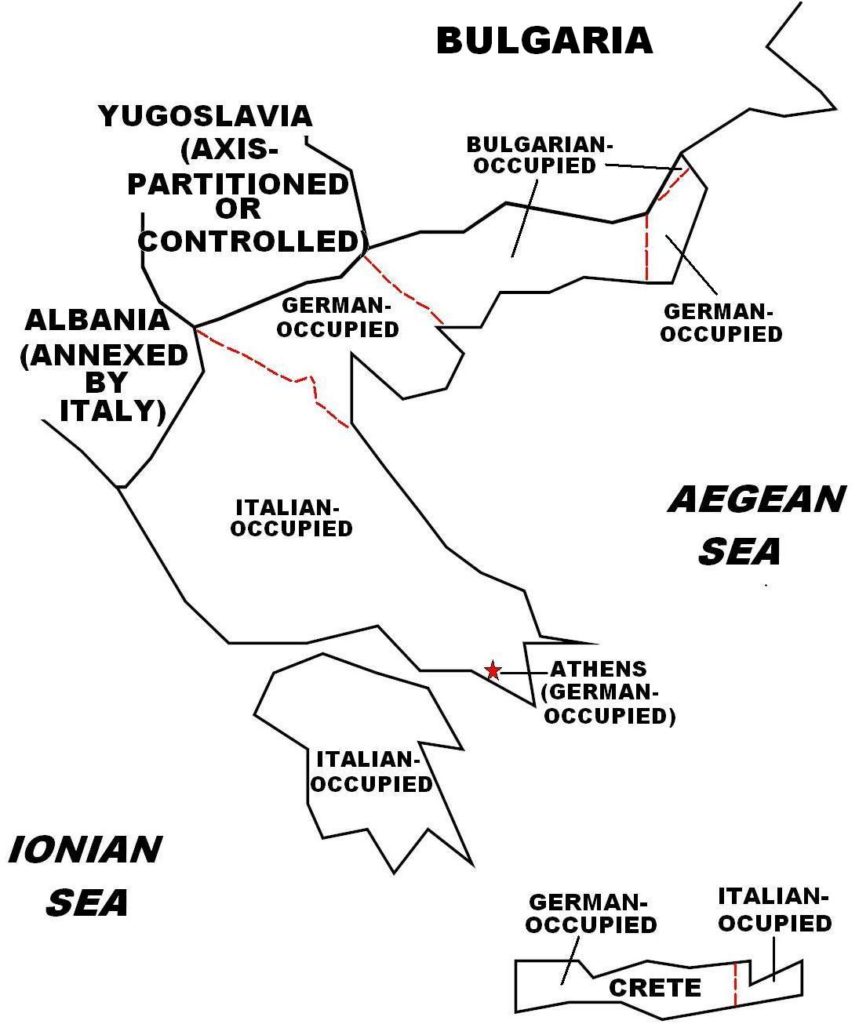In early June 1941, the Axis conquest of all Greek territories was completed by the German capture of Crete after a two-week offensive. This campaign, known as the Battle of Crete, involved German paratroopers and glider units seizing strategic points in the northern coast preparatory to the arrival of other ground forces. The initial German landings brought near disaster, as the paratroopers suffered heavy casualties and the Luftwaffe lost a significant number of planes. But with the capture of Maleme airfield following an Allied communications error, the Germans established a toehold in Crete for more troops to arrive. On June 1, 1941, the Germans seized the whole island; some 18,000 Allied soldiers who had failed to be evacuated were captured.
(Taken from Invasion of Greece – Wars of the 20th Century – World War II in Europe – Vol. 6)
Aftermath Greece was divided into Axis occupation zones, with Germany taking the most strategically important regions, including Athens, and the Italians occupying much of the rest of Greece. Bulgaria, which did not participate in the invasion, was allowed to occupy Western Thrace and Eastern Macedonia. In Athens, the Germans set up a collaborationist government under the renamed “Hellenic State”, which held no real power but served merely as a conduit for German impositions.

The Axis occupation brought about dire consequences: tens of thousands were killed in executions and as a result of famine, infrastructures were left to ruin, and industries and economic activity stagnated. By late 1941, anti-Axis militias had begun to organize, leading to the rise of the Greek Resistance, which would expand in 1942 and 1943, and achieve considerable success, particularly in the mountainous interior and by tying down large numbers of Axis forces.
To this day, historians continue to deliberate whether Hitler’s decision to intervene in Greece and Yugoslavia indirectly caused the failure of Operation Barbarossa, Germany’s invasion of the Soviet Union. Proponents state that the Balkan intervention forced Germany to delay Operation Barbarossa, moving back the earlier launch date of May 14, 1941 to June 22, 1941, or at the very least, that Germany had to await the outcome of its Balkan campaign before it could invade the Soviet Union. Opponents argue that other factors, not the Balkan campaign, forced Germany to delay Operation Barbarossa, including flooded rivers in Eastern Europe resulting from an unusually wet winter, incomplete logistical preparations, and the need to secure its Balkan flank from a possible British attack. In this way, they conclude that Germany’s invasion on June 22, 1941 was doomed to failure from the start.
